Voters' thoughts sent to the Provincial People's Council session
(Baonghean.vn) - Before the 14th session of the 18th Provincial People's Council, voters in the province reflected on many existing problems in practice and expected that all levels and sectors would have more effective solutions.
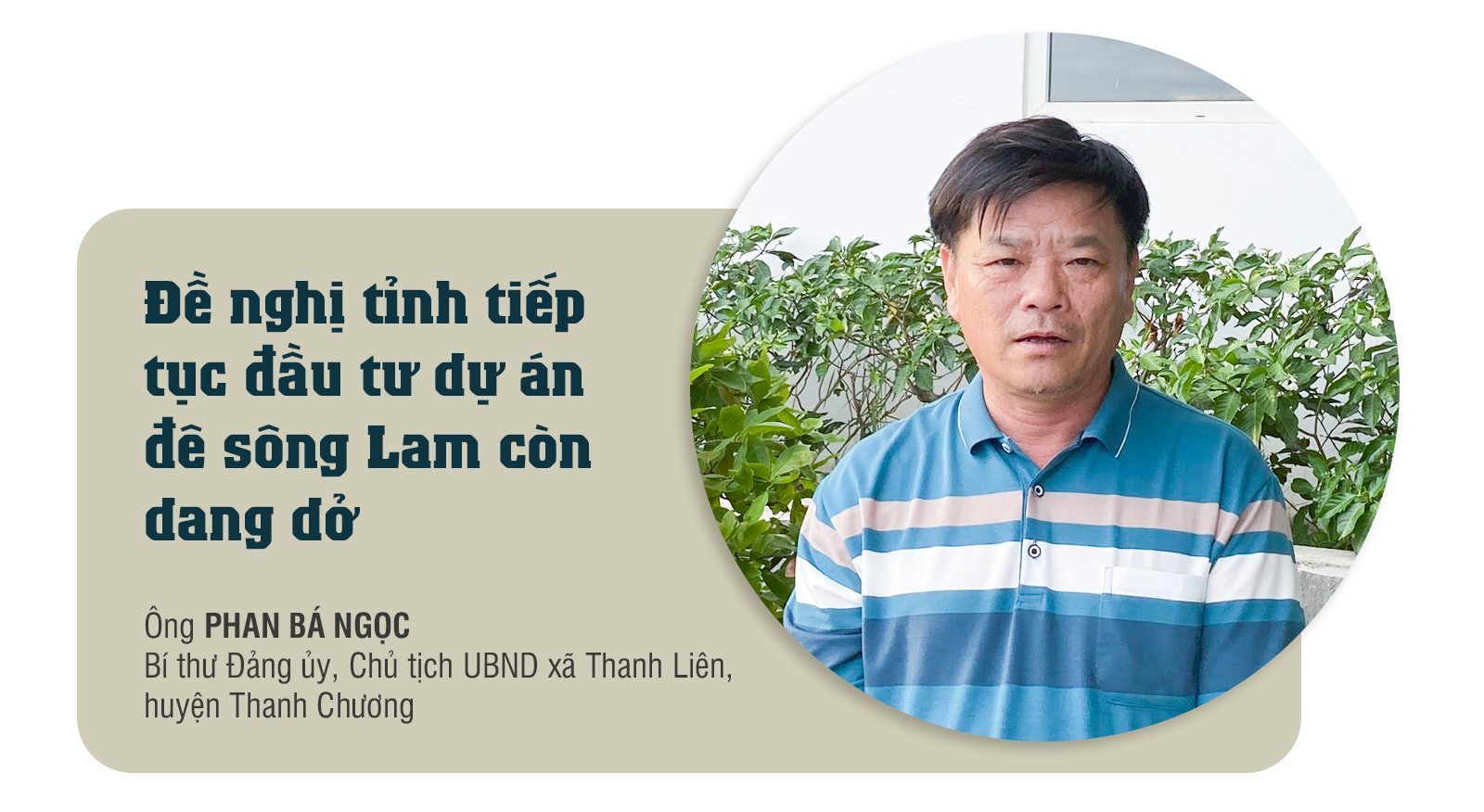
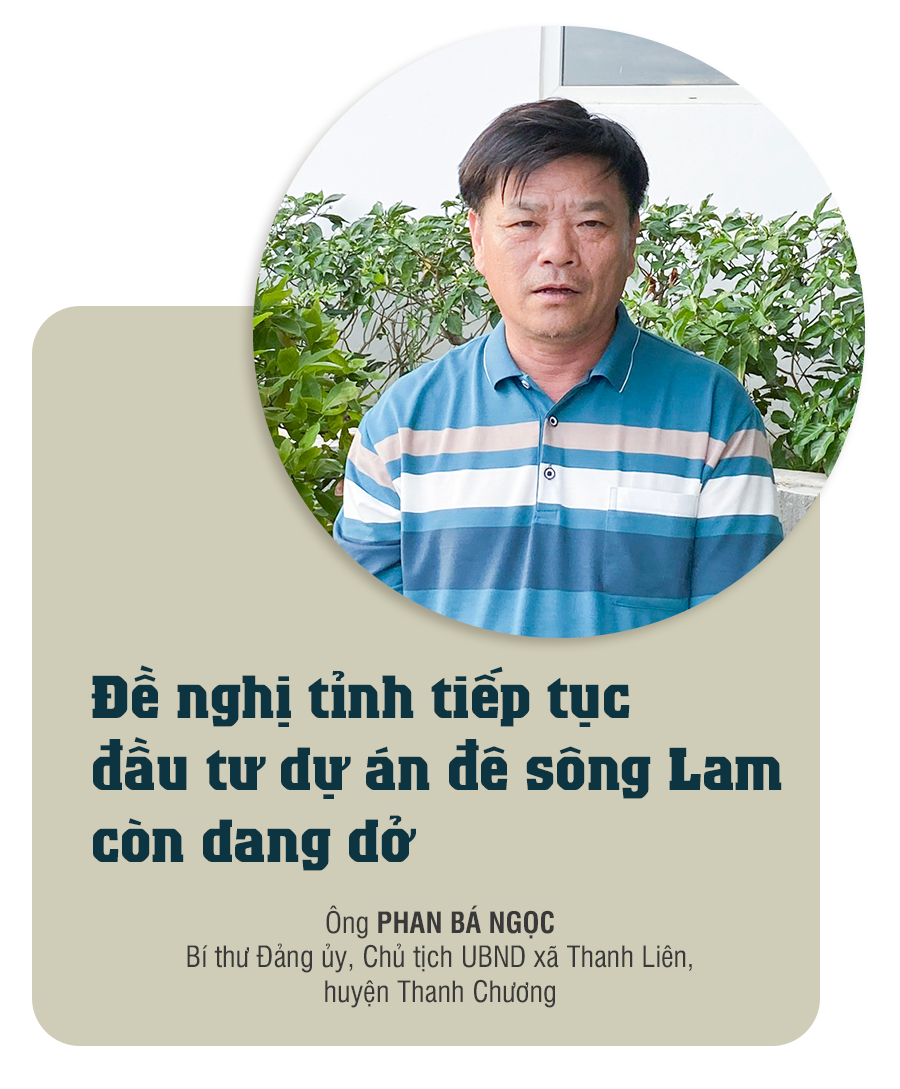
The project to invest in building a 6km long dike to prevent floods on Lam River to Thanh Lien commune has been stopped for more than a year (since the beginning of 2022). Due to the unfinished construction, during the recent flood in late 2022, water from upstream poured down to form a "water bag" in the section where the dike had not been built, causing landslides on agricultural land of people with a length of more than 1km and a depth of 5m; at the same time, causing landslides on the local irrigation pumping station and the risk of this pumping station being swept away if the remaining dike section is not invested in promptly. Therefore, it is recommended that the province and the Department of Agriculture and Rural Development (the project investor) urgently continue to implement this project.
At the same time, the project to upgrade National Highway 46C passing through the area due to the inadequate drainage system, led to local flooding for 385 households in Lien Khai hamlet during heavy rains. The province is requested to work with relevant units to conduct surveys and handle the clearance of the canal system along National Highway 46C, overcoming the local flooding situation for affected households in the locality.
* * *
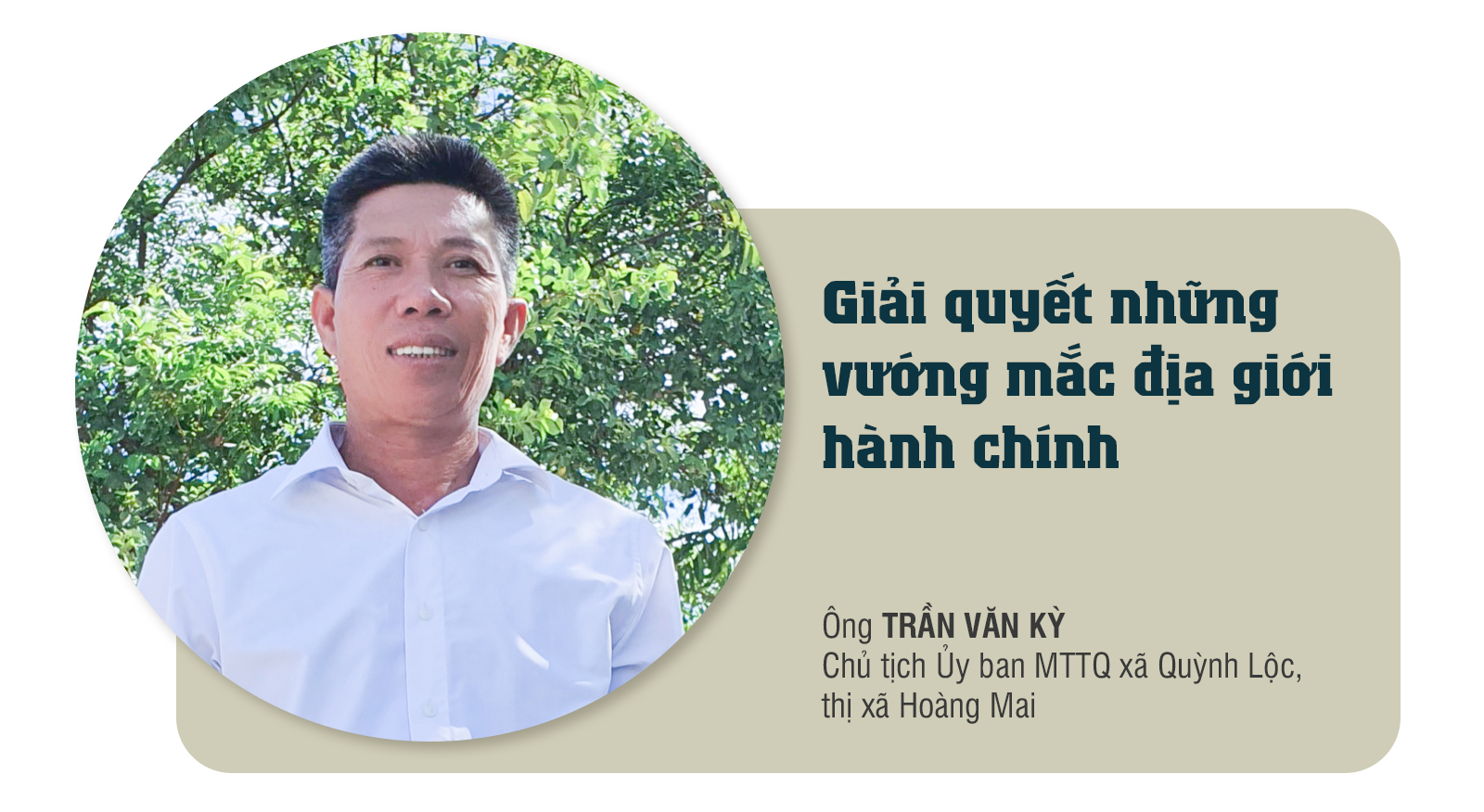
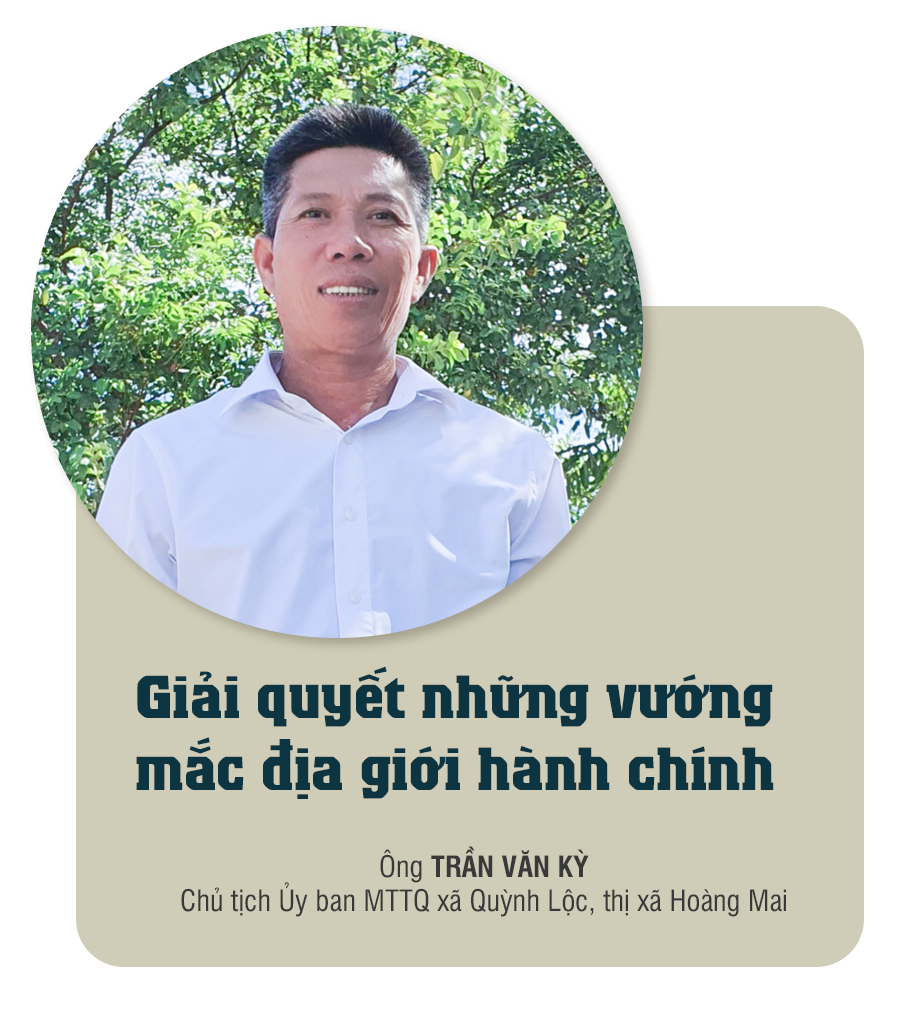
Currently, in village 10, Quynh Loc commune, there are 435 households, of which more than 300 households have land and solid houses on the administrative boundary map of Nghi Son town, Thanh Hoa province.
Although administrative management, population and socio-economic activities, national defense - security and social security are under the jurisdiction of Quynh Loc commune (Hoang Mai town), land management belongs to Nghi Son town, Thanh Hoa province. Therefore, currently, more than 300 households have not been granted land use right certificates, although many households have lived and used land legally since the 60s of the last century, that is, about 60 years ago. This has caused difficulties for Quynh Loc commune in land management because it is not under its authority, while the Nghi Son town government (Thanh Hoa province) does not care. Thus, the legitimate rights of the people are affected, especially in the procedures for applying for a permit to build a house, or borrowing capital from the economic development bank, or exercising the rights to transfer, donate, sell, etc., all of which cannot be implemented.
Therefore, it is recommended that Nghe An province pay attention to working with Thanh Hoa province and central ministries and branches to readjust administrative boundaries, bringing the residential land area of more than 300 households to Quynh Loc commune for management; creating conditions for households to be granted land use right certificates, ensuring the legitimate rights of the people, and at the same time performing well the function of state management of land.
* * *
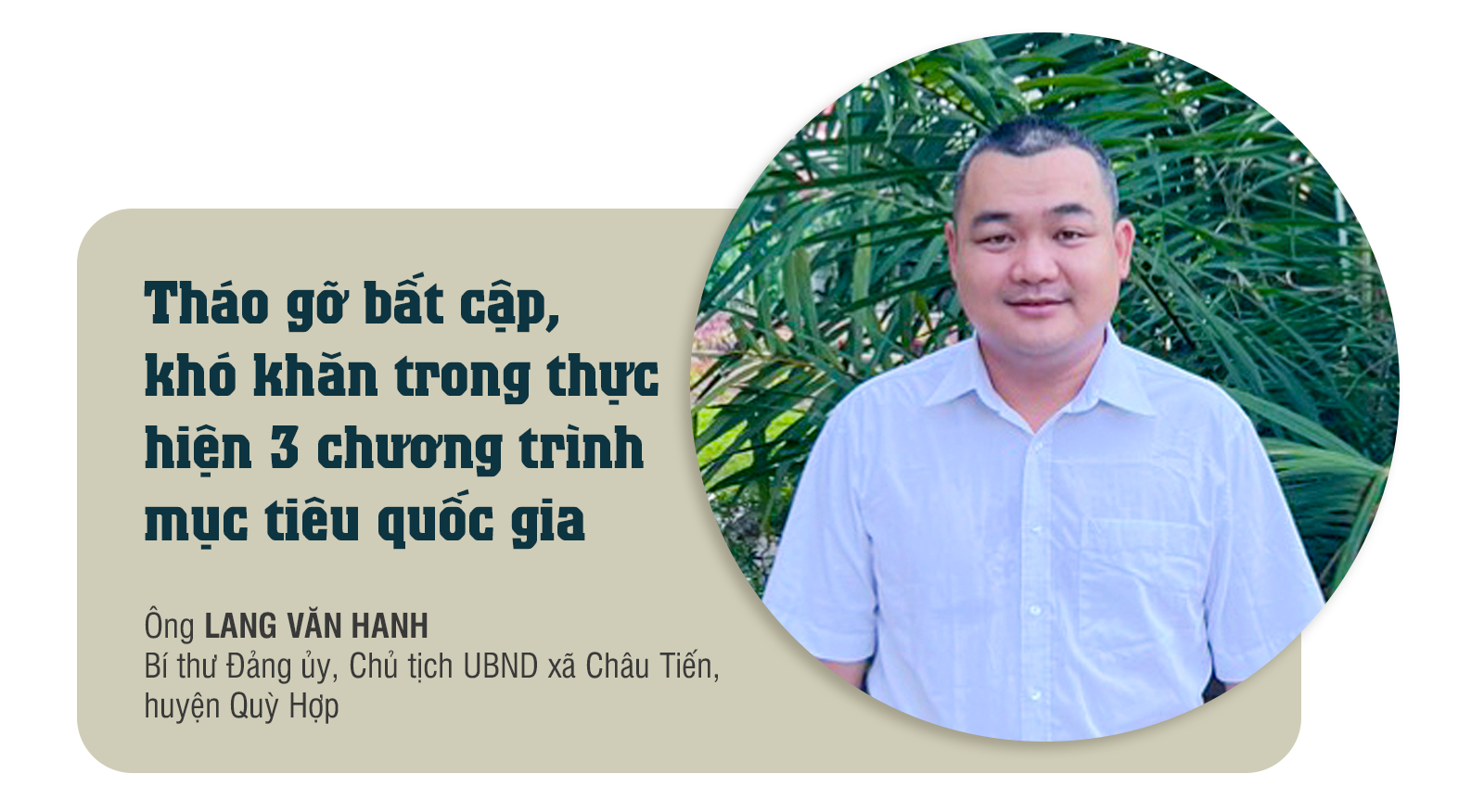
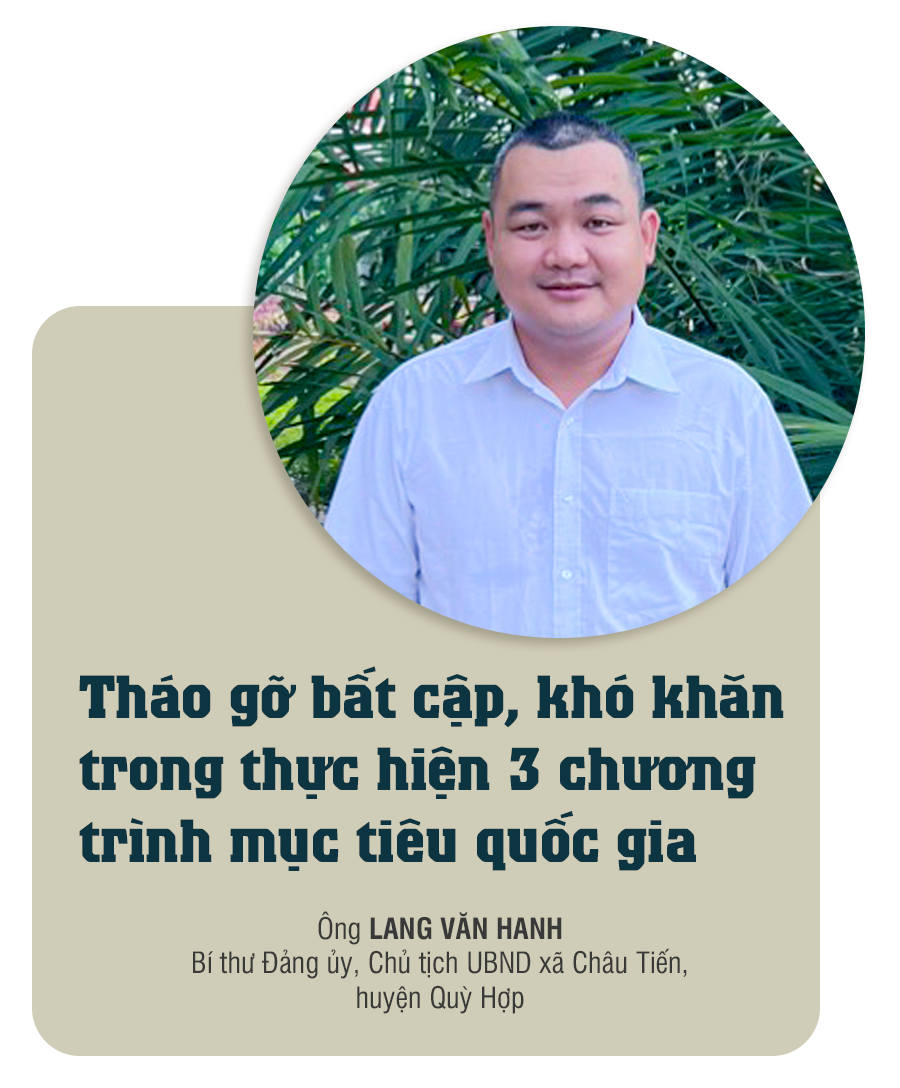
Chau Tien commune has more than 98% ethnic minorities; socio-economic conditions still have certain difficulties; the poverty rate is still high, accounting for 32.2%. In recent times, the Party and State have prioritized many investment programs and projects to support the development of ethnic minority and mountainous areas; including three national target programs, including new rural construction, sustainable poverty reduction and socio-economic development of ethnic minority and mountainous areas. However, in the process of implementing all three programs, the general situation is that the budget allocation to localities is still slow and the funding level has not met the needs of the progress of implementation items.
As for the socio-economic development program for ethnic minority and mountainous areas, the period 2021 - 2025, the locality is allocated 10 billion VND for 3 construction items, including: building a new kindergarten; building a multi-functional cultural house in 2 villages; repairing and upgrading the medical station. For the kindergarten alone, the total approved source is 5.5 billion VND and allocated in 3 years 2022, 2023, 2024; meanwhile, the Law on Bidding stipulates the contract implementation time for the project is only less than 12 months (the project started construction in February 2022).
Therefore, it is recommended that all levels and sectors study the allocation of capital according to the objectives, tasks and results of using annual funding sources of each locality. Because for communes and villages with special difficulties, balancing local budget sources and mobilizing contributions from the community and people in cash, in kind, and in working days is extremely difficult to ensure that the project is implemented on schedule and quickly becomes effective.
At the same time, the capital for the two investment projects of the village cultural house and the medical station is also slow. The sustainable poverty reduction program in 2022 and 2023 has not been disbursed, affecting the local implementation plan related to the construction of a decentralized domestic water supply system for people and supporting the development of livestock models. Therefore, it is recommended that all levels and sectors research solutions to remove obstacles and create conditions for the development of ethnic minority and mountainous areas in general, and Chau Tien commune in particular.
* * *


The One-Stop Shop is the main transaction channel between the people and the government. Therefore, localities, agencies and units in the province always pay attention to and arrange a team of qualified, ethical and experienced officials and civil servants to receive citizens at this department. The volume of administrative procedures is increasing, especially in the fields of justice, land, construction, investment, policy, etc., which has created great pressure for those working at the One-Stop Shop. Moreover, officials must both be on duty at the One-Stop Shop and perform professional duties.
I understand that at the 14th Session, the 18th Provincial People's Council will consider and approve the draft Resolution regulating the support regime for cadres, civil servants, public employees, and workers working at the One-Stop Department at all levels in Nghe An province. That will be a very practical policy to support cadres, civil servants, and public employees working at the One-Stop Department, a timely source of encouragement and motivation for us to make more efforts in our work.
* * *
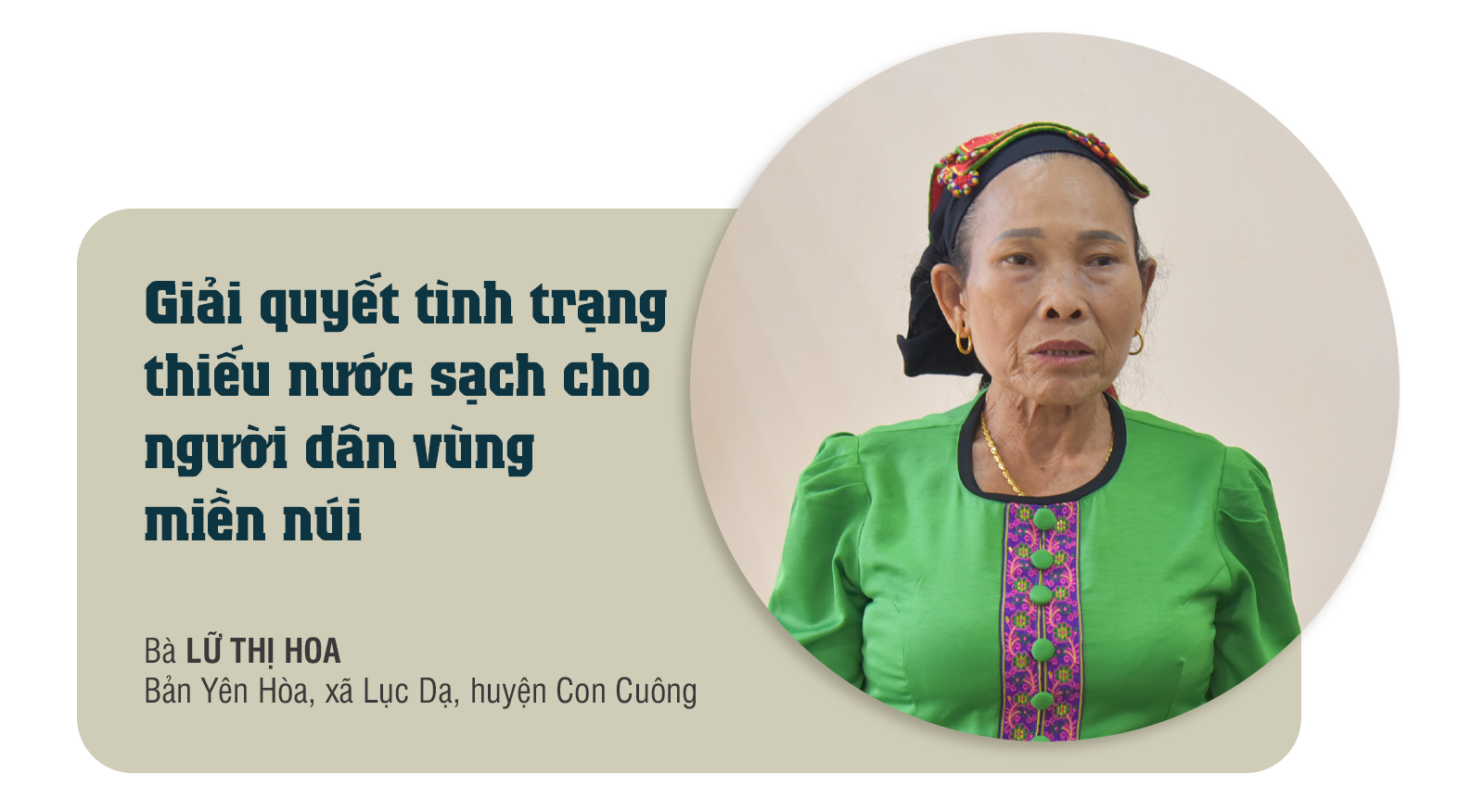
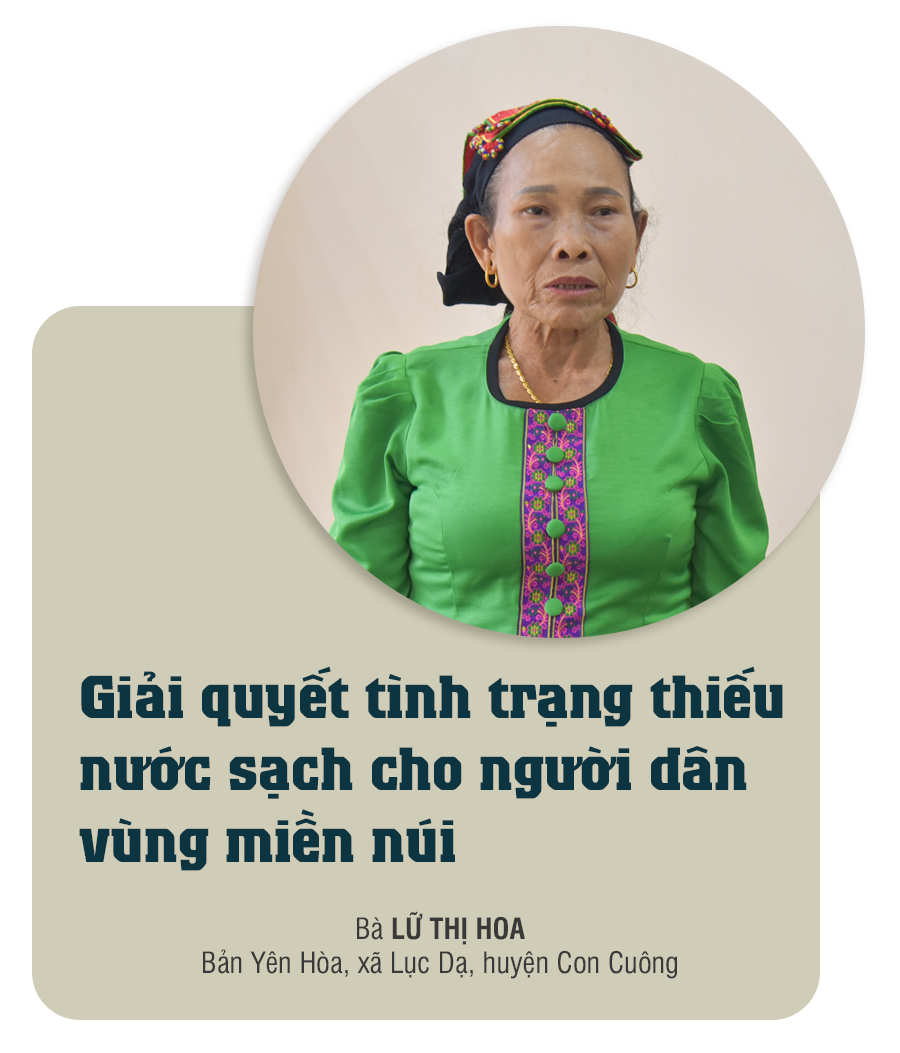
Currently, in many villages of ethnic minorities and mountainous areas, infrastructure conditions are still very difficult and lacking, especially the lack of clean water for people's daily life. In the commune, there have been a number of domestic water projects invested in and built, but due to long-term investment, they are now damaged and degraded, and the drought has been prolonged, so many projects cannot function. People are still using water from the mountain stream, bringing water to their homes, but up to now, this water system is no longer working.
We recommend that the State soon issue mechanisms and support resources for localities to invest in building more concentrated domestic water facilities in ethnic minority and mountainous areas, in order to solve difficulties in domestic water. It is recommended that the national target program for socio-economic development in ethnic minority and mountainous areas as well as the policies of the Provincial People's Council should include domestic water support as one of the key contents.
* * *

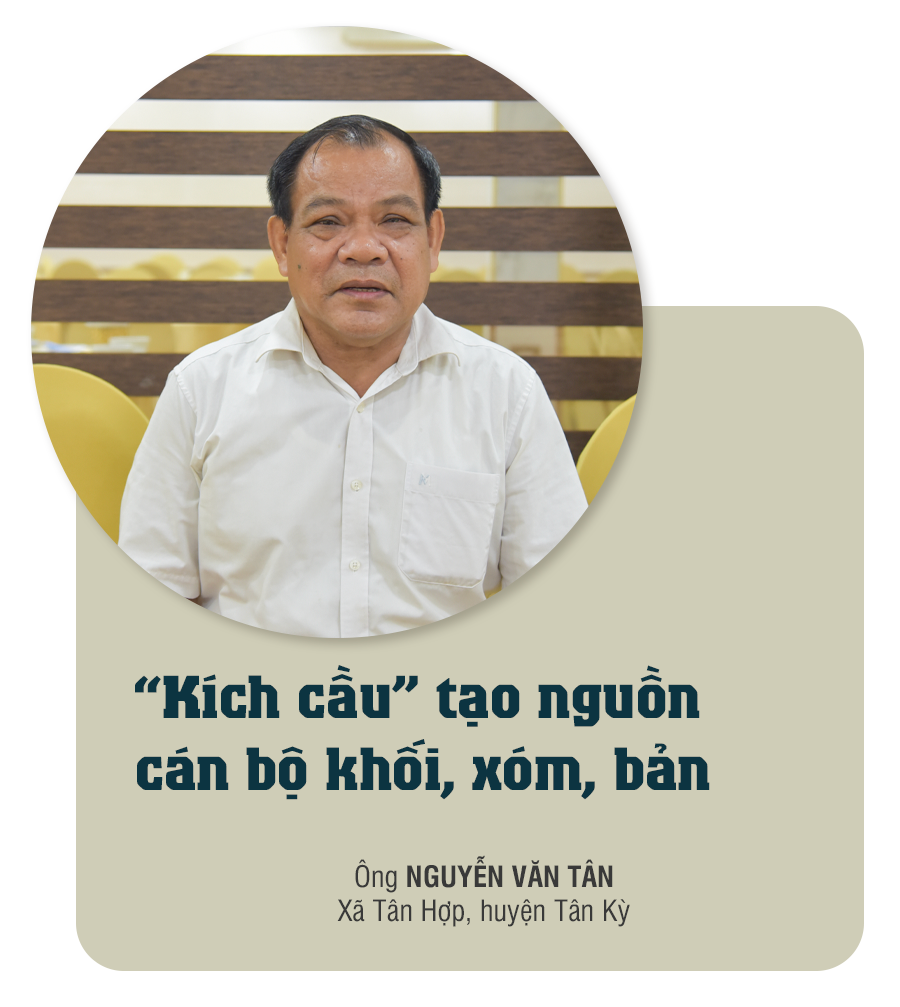
The cadres of the block, hamlet and village are the ones who are directly attached to the people to implement the Party and State's policies and guidelines into life. This has placed heavy responsibilities on the shoulders of these non-professional cadres, especially after the merger of the block, hamlet and village, the scope of management has expanded. However, the current regime and policies for this team are not commensurate. This makes many people not interested in the job, even when facing difficulties, they refuse, many cases resign.
The reality today is that the majority of village and hamlet cadres are elderly, especially the Party cell secretaries, who are mainly retired cadres. They are very enthusiastic but it is difficult to apply information technology to process documents. From this reality, it is thought that all levels and sectors need to create mechanisms and have "stimulus" policies for young people to participate as block, hamlet and village cadres; it is necessary to pay attention to the regime and policies for block and hamlet cadres after the merger.

